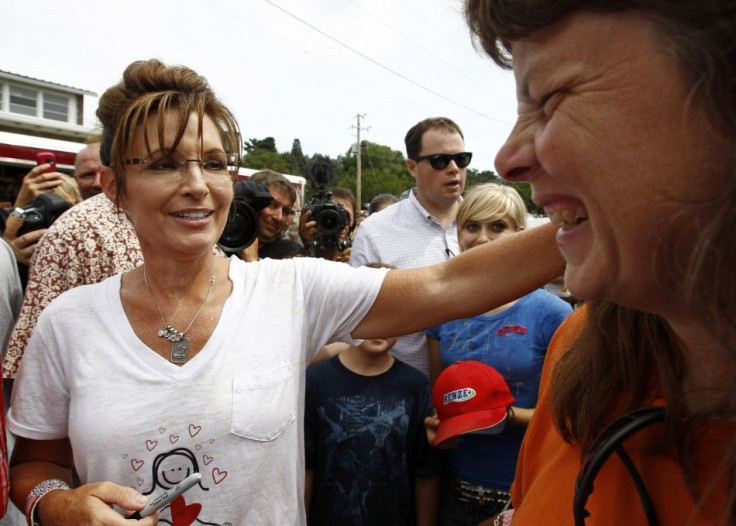Sarah Palin 2012: Could She Hurt the Republican Party’s Quest for the Presidency?
ANALYSIS

It is perhaps the Republican Party's worst nightmare.
More on the nightmare in a minute.
First, the reality of the facts on the ground, to borrow a phrase from former Israel Prime Minister and General Ariel Sharon:
The latest Bloomberg National Poll, a Sept. 9 through 12 survey, has President Barack Obama ahead of former Massachusetts Gov. Mitt Romney, 48 percent to 43 percent, in a hypothetical match-up.
That same Bloomberg National Poll has Obama leading Texas Gov. Rick Perry by an even larger margin, 49 percent to 40 percent.
Also, the latest available Gallup Poll, Aug. 4 through 7, for its Generic Ballot versus President Obama has Obama leading the the GOP candidate 45 percent to 39 percent.
U.S. Electoral College, As of Sept. 2011
Let's put on the old political science thinking cap and try to extrapolate what the above percent breakdowns mean in terms of the U.S. electoral college:
Obama 290, Romney 248 -- plus or minus 10 electoral votes.
Obama 310, Perry 228 -- plus or minus 10 electoral votes.
Obama 287, Generic Ballot 251 -- plus or minus 10 electoral votes.
In 2008, it was: Obama 365, McCain 173.
Against the generic ballot, the 2012 U.S. presidential election is a close one. In the others, if the election was held today, Obama would register a decisive victory.
Still, the important point to remember is that the election is not today, but 14 months from now, in November 2012, and a year is a lifetime in politics.
The GOP's Worst Nightmare
Now back to the Republican Party's worst nightmare.
What is it? Former Alaska Gov. Sarah Palin enters the race, but not as candidate vying for the Republican Party's 2012 nomination, but as a third party candidate on the Tea Party slate.
(Palin could also form a new third party, perhaps a Palin Party, but for the sake of argument let's assume it's the Tea Party.)
With Palin running as a third party candidate on the Tea Party slate, what happens to the 2012 presidential race?
More than likely, many conservative Independent voters, some conservative Republicans, and some conservative Democrats choose to vote for Palin as opposed to the Republican Party's nominee. Few conservatives are expected to vote for the Democratic Party's Obama, with or without Palin in the race.
In other words, the party that will be most hurt, electorally, by a Palin third party candidacy would be the Republican Party: her run would likely widen President Obama's lead in most states where he is ahead, decrease the GOP candidate's lead in states where Obama is behind, and could push a couple of tight-race states into the Democratic column.
Political/Election Analysis: For the above reason, the view from here argues Palin will not run as a third party candidate, Tea Party or otherwise, because she knows that doing so would hurt the conservative cause and make it more likely that President Obama would win the re-election.
There are other reasons why Palin will not run at all in 2012, but won't announce it until she has to: to learn why, click here.
Finally, it's critical to underscore that the health of the U.S. economy will most likely be the No. 1 issue in the 2012 campaign, and if it weakens, and the high, 9.1 percent U.S. unemployment rate rises, the 2012 presidential race will tighten. Conversely, if the U.S. economy strengthens and the unemployment rate declines steadily, that will increase Obama's electoral lead.
© Copyright IBTimes 2024. All rights reserved.





















